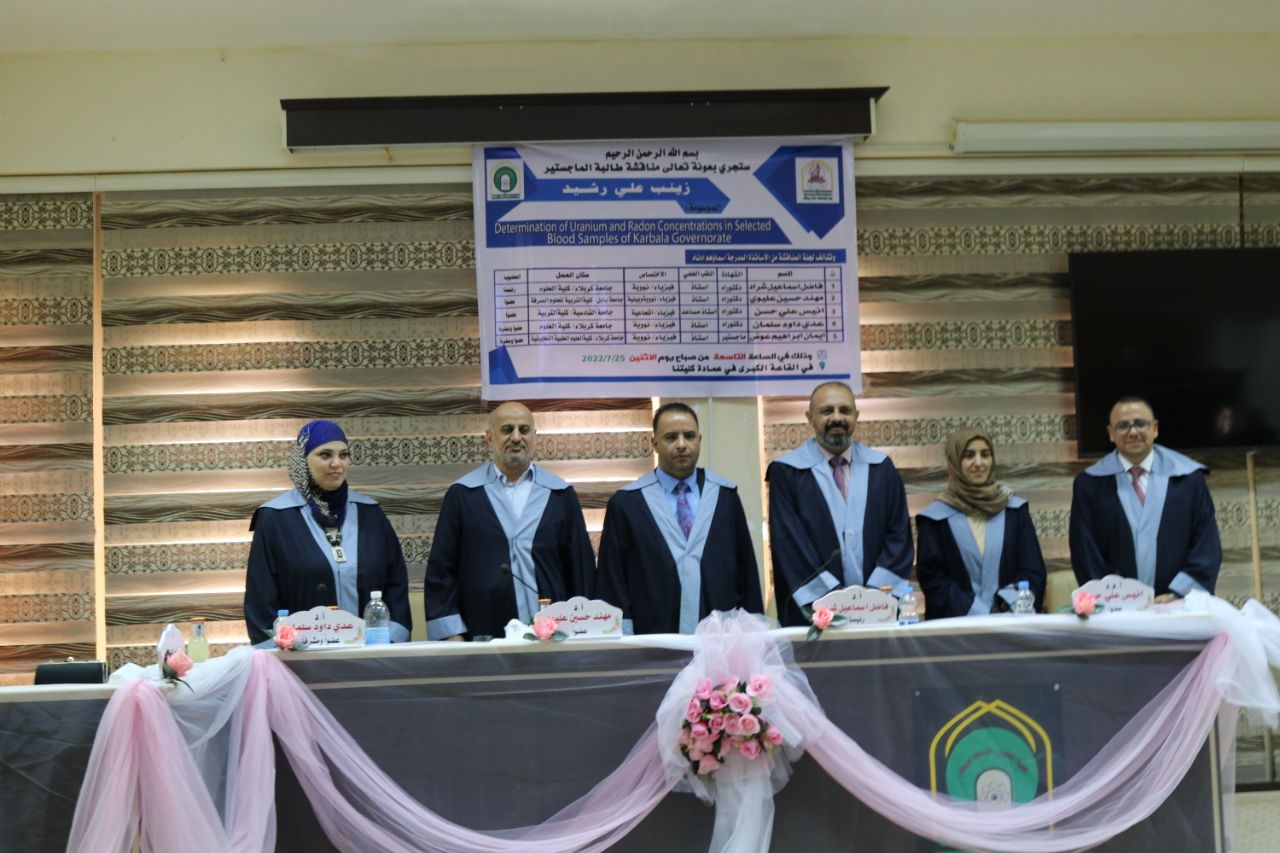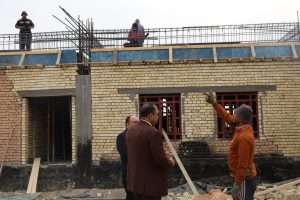A master’s thesis at the College of Science at the University of Kerbala has discussed a study on the determination of uranium and radon concentrations in selected blood samples for Kerbala city by student Zainab Ali Rasheed.
The study aimed to measure the concentration of uranium and radon in blood samples of cancer patients (leukemia, digestive system and kidneys) using the CR-39 solid-state nuclear trace detector technology. A total of 115 samples of different ages were collected for examination, including 75 samples from cancer patients and 40 samples from healthy subjects. Samples were taken from Al-Hussein Medical City Hospital in Kerbala governorate. Blood samples were irradiated with a neutron source (americium-241-beryl-9, neutron intensity cm-2s-1), including 75 samples from cancer patients and 10 from healthy controls for 7 days. The reagent was exfoliated with sodium hydroxide solution, as well as the reagents were washed with distilled water and then dried. The traces of alpha particles were calculated using a light microscope, and the uranium concentration was measured in 30 samples of children (25 patients with leukemia and 5 from the healthy group). The highest rate of uranium concentration was found in the group of leukemia patients with Children. Furthermore, the concentration of uranium was measured for 60 samples, which are 50 patients with cancer in the digestive system and kidneys, and 10 in the healthy group.
The study concluded that concentrations could be said that there is a relationship between the concentration of uranium, gender and age, as well as that the rate of uranium concentration in females is higher than in males. The concentration of uranium in females and males increases with the age of the patient. Samples were stored for 60 days in tubes after being dried and crushed. We also found that the concentration of radon gas in males is relatively higher than in females, due to the fact that the percentage of the pollution that males are exposed to is higher than that of females.
The study recommended the necessity of conducting periodic examinations for males to avoid the infections they are exposed to, as well as to avoid leukemia in particular.






























































